
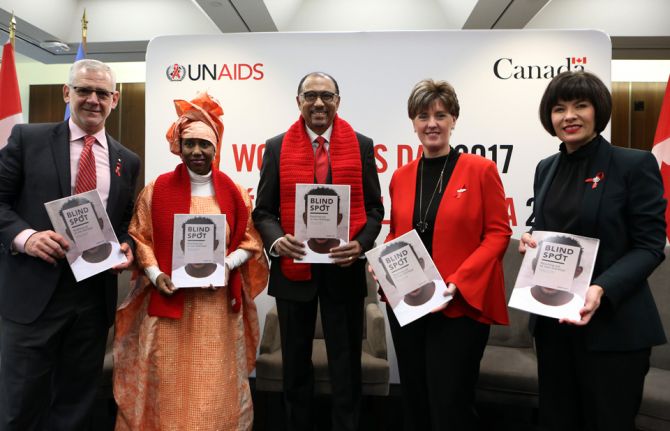
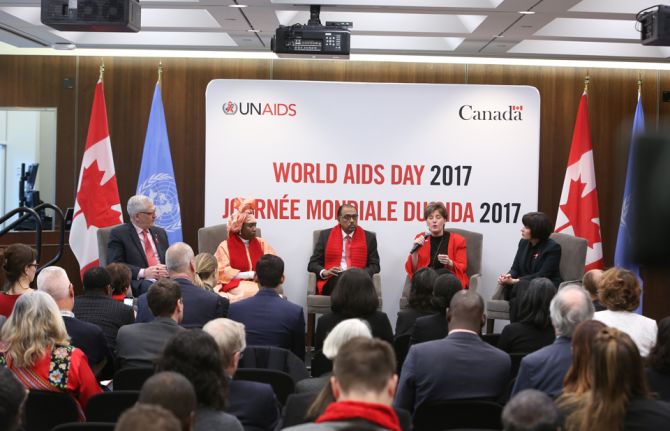
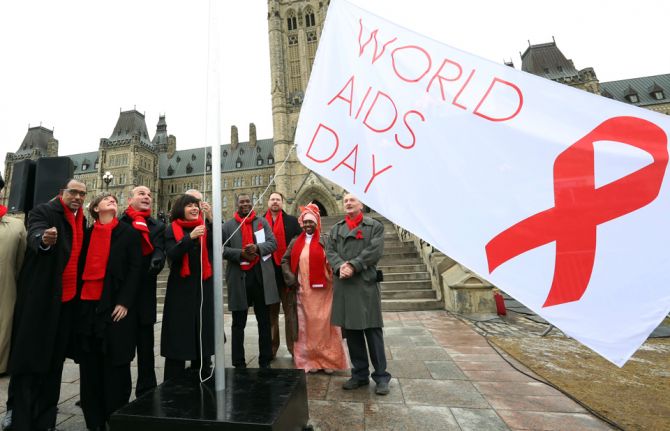
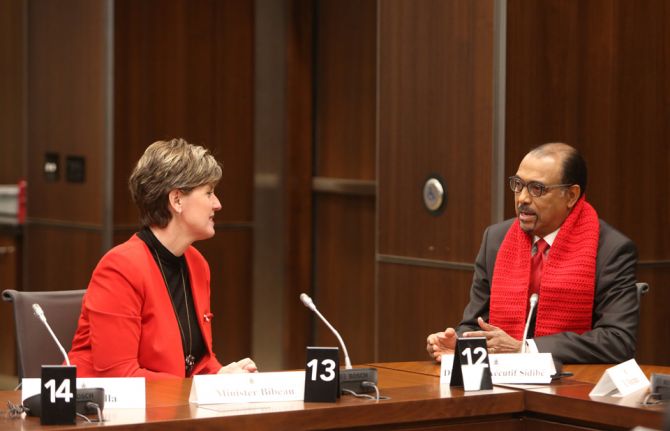
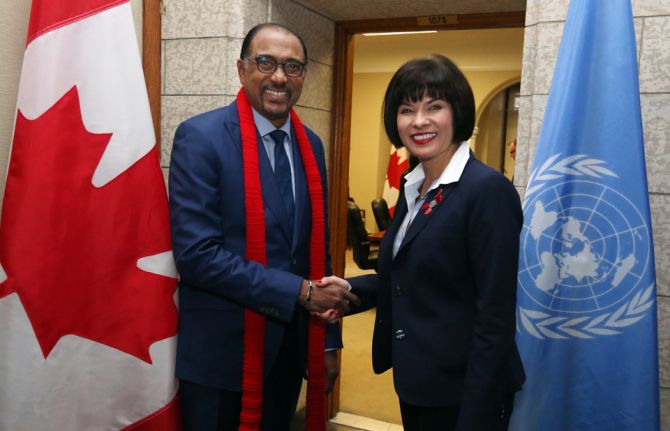
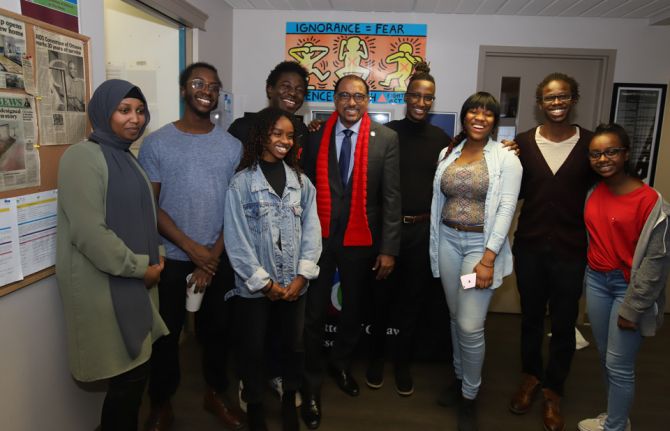
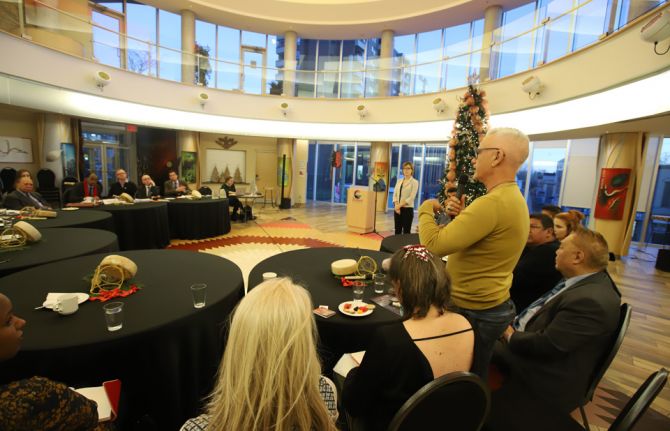
Update
Learning about the AIDS response in Canada
01 December 2017
01 December 2017 01 December 2017During a visit to Ottawa, Canada, from 29 November to 1 December, UNAIDS Executive Director Michel Sidibé discussed with government officials ways to strengthen collaboration with the Canadian Government and met with representatives of civil society.
Mr Sidibé visited the AIDS Committee of Ottawa to see first-hand how a frontline AIDS service organization is responding to the opioid crisis in Canada. At a round-table discussion with Canadian civil society organizations, the successes and challenges in the Canadian response to HIV were highlighted. During the discussion, Mr Sidibé stressed that a vibrant civil society was critical to scaling up responses towards universal access to HIV prevention, treatment, care and support.
Mr Sidibé also met Marie-Claude Bibeau, Minister of International Development and La Francophonie, and Diane Jacovella, Deputy Minister of International Development, who underlined the progress made in preventing new HIV infections and the important impact those efforts are having on women’s health, including the sexual and reproductive health and rights of women.
Mr Sidibé spoke with senior government officials during a town hall meeting on human rights-based approaches to health and how the response to HIV can be a catalyst for accelerating progress towards achieving the Sustainable Development Goals. He shared his vision and perspective on the opportunities towards ending AIDS and spoke about the recent reform of UNAIDS. The link between sexual and reproductive health and HIV was discussed, as was the need for greater efficiencies and reform in the global health architecture.
Mr Sidibé also met the Minister of Health, Ginette Petitpas Taylor, and the Minister of Indigenous Services, Jane Philpott, to discuss the HIV epidemic in Canada and to hear their perspectives on the current needs and challenges of the AIDS response in the country, especially among indigenous populations. It was highlighted that tuberculosis and hepatitis are major causes of death among indigenous people in Canada. They discussed how cooperation between UNAIDS and Canada could help in addressing the special needs of indigenous people.
The visit ended on World AIDS Day with the launch of a groundbreaking report on increasing male engagement in health services and with Mr Sidibé raising a flag on Parliament Hill with Ms Bibeau, Ms Petitpas Taylor and representatives of people living with HIV.
Quotes
“We need Canadian leadership to achieve social justice and the end of the AIDS epidemic by 2030.”
“We must address the gender inequality that allows HIV to flourish—for women and girls, and for men and boys too. This year’s UNAIDS report tells us that men are less likely to take an HIV test or seek medical help when they are sick, and if they do access treatment, they are less likely to stick with it. We must do a better job of reaching our men and our youth with HIV services, both for them and for their partners and families.”
“Canada is committed to the UNAIDS 90–90–90 treatment targets and the goal of eliminating AIDS by 2030. We have important research and community-based projects across Canada that reflect our government’s focus on supporting prevention, reducing stigma and discrimination, and increasing access to testing and treatment for people living with HIV and other sexually transmitted and blood-borne infections.”
Region/country
Related
 Government ensures continuity of treatment in Malawi
Government ensures continuity of treatment in Malawi

10 February 2025


